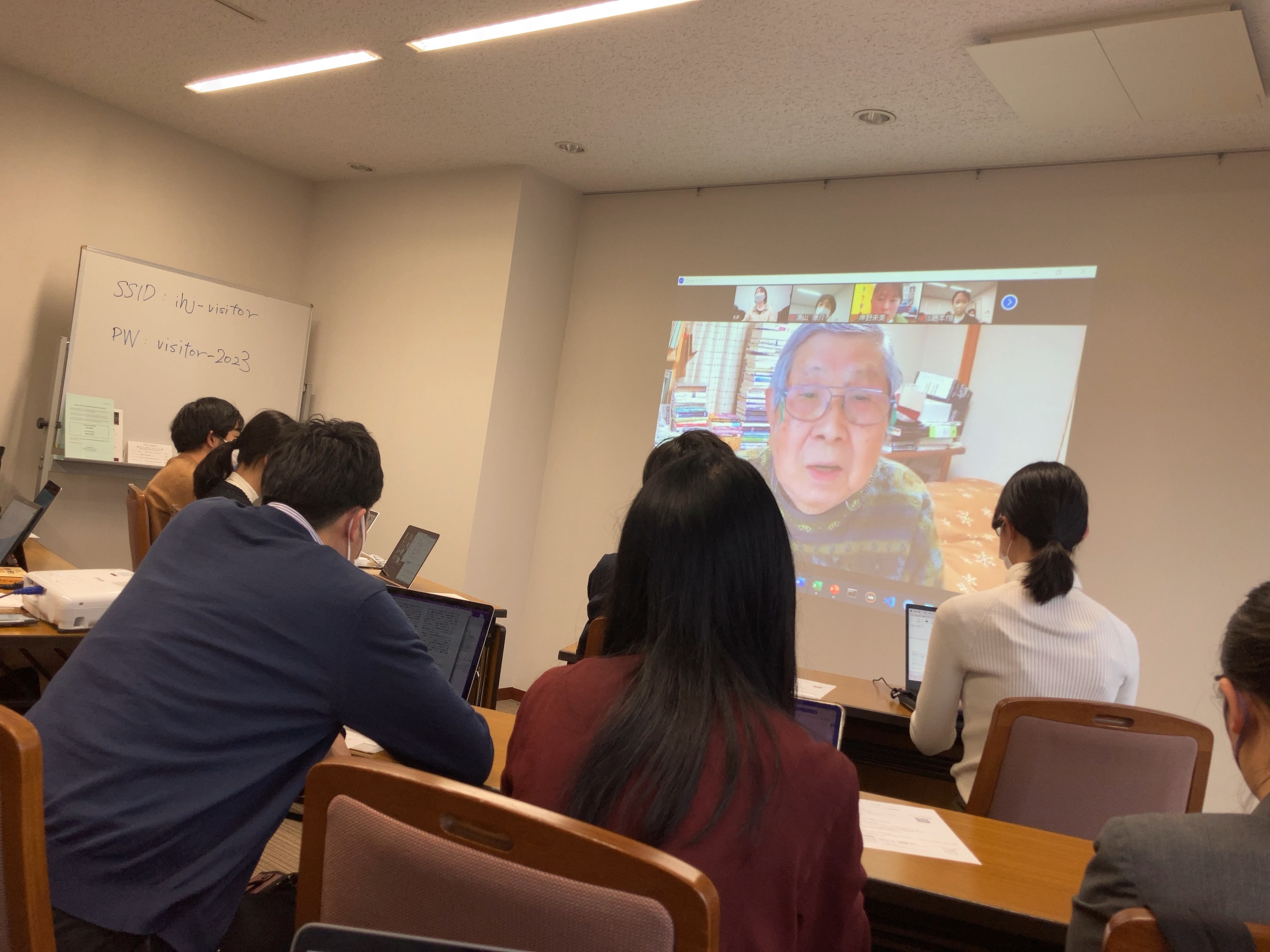- HOME
- Activities
- Forum List
- Forum Details
January.14.2023 KIP January Forum "Islam and Civil Society"

Mr. Mitsuo Nakamura, Professor Emeritus, Chiba University
【Speech and Q&A】
In the first forum of 2023, we heard a talk on the Islam in Indonesia from Mr. Mitsuo Nakamura, a leading scholar of Islam in Southeast Asia, taking into consideration the upcoming study trip there. After the lecture, a discussion followed on the theme of “Which is more important, religion or human rights?” based on the relationship between religion and society in Indonesia.
Mr. Mitsuo Nakamura:Brief Personal Record
After graduating from the University of Tokyo in 1960 with a B.A. in Philosophy from the Faculty of Letters, he switched his major to Cultural Anthropology and received his M.A. from the University of Tokyo in 1965. He studied at Cornell University in the U.S. as a Fulbright Scholar and in 1976, he received his Ph.D. In 2017, he was awarded the "Cultural Merit Award" by the Minister of Education and Culture of the Government of Indonesia.
What struck me in the lecture was that Islam in Indonesia is quite different from what we expected generally in Japan. I had an impression that Islam had strict precepts, so I was surprised to learn that in Indonesian Islam is friendly.
It was also very interesting to hear that the history of the gradual and peaceful spread of Islam in Indonesia, as Muslim traders and missionaries came to Indonesia, married locally, and settled down. The beliefs of local groups are not only influenced by relatively recent conditions, but also by the history of several hundred years ago, which may not be directly related to the people living today.
In addition, Mr. Nakamura told us that Islam is based on the notion that "human beings are imperfect". Therefore, Muslims in Indonesia engage in discussions with each other, and understanding the world created by God is an expression of their faith. I am not a Muslim, but I would like to learn from their way of thinking.
After the speech, a question was raised as to how Indonesian Muslims feel about the situation of Islam in other countries. In response, Mr. Nakamura said that Indonesian Muslims are confident in their Islamic culture and they are trying to spread their culture in other regions of Islam, such as the Arabian Peninsula. This was a so interesting topic that new questions occurred to my mind one after another.
【Group discussion and Ground discussion】
We debated on the theme of “Which is more important, religion or human rights?” Our conclusions were clearly divided into three groups: “Religion is more important,” “Human rights are more important,” and “It depends”. The “religion-first” team cited the fact that religion is already deeply embedded in Indonesian life and politics, that the country is united by tolerant religion. On the other hand, the “human rights first” group, while agreeing that Islamic doctrine unites the Indonesian people, said that human rights should be guaranteed from birth and this includes freedom of religion.
Although the discussion seemed to be going in three different directions, through the ground discussion that followed, it became clear that all groups shared the view that religion and human rights should not be seen as a binary opposition, and that it is better to guarantee human rights while making use of religion as the basis of life.
【Personal Opinion】
Before the forum, I had thought that religion and science were fundamentally incompatible. Although Islam is fundamentally incompatible with natural science in that God created the world, the attempt to "understand nature and the origin of the world" is truly natural science itself, which is why astronomy and medicine developed in Islam. The Islamic situation in Indonesia is a good example of how religion permeates daily life and does not hinder the development of science and technology. I would like to continue to consider the relationship between religion and science.
Rina Keboushi, University of Tokyo, Natural Sciences 2, 2nd year


